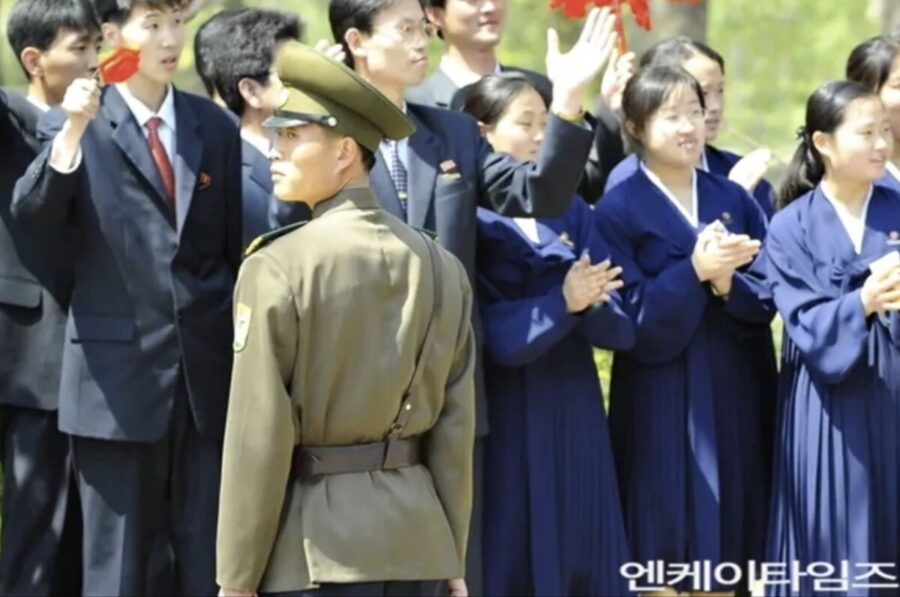In an era of greater control, North Korea is quietly fracturing

In recent years the regime in North Korea has steadily intensified its enforcement of the “socialist lifestyle,” tightening control over nearly every aspect of daily life.
Simplified weddings and funerals, restrictions on clothing and language, and the rejection of foreign culture are no longer mere lifestyle guidelines. They function as calculated tools for regime preservation.
I lived in North Korea for over 20 years, growing up near a coastal city in South Hwanghae Province. There, I sold goods in the jangmadang market and learned how to navigate life within the confines of state-run organizations. The “lifestyle” imposed on us was not a matter of culture. It was a code for surveillance and control.
In 2021, the leader, Kim Jong-un, emphasized the construction of a “socialist civilized nation” during a plenary meeting of the Central Committee, ordering the establishment of “moral discipline” in people’s daily lives.
As a result, a notorious law known as the Anti-Reactionary Thought Law was introduced.
Since then, authorities have strengthened regulations under the banner of “socialist virtues,” labeling anti-socialist and non-socialist behaviors as “malignant tumors” that threaten unity, and implementing legal and institutional mechanisms to eradicate them.
What I experienced was even more direct. A friend of mine got married and had a cameraman record the ceremony. An issue arose over her modern-style dress. It was seen as Western. When the authorities caught wind of the recording, the couple faced a serious problem.
They were first subjected to criticism sessions in their neighborhood and workplaces. Then there was a public trial and they were sentenced to prison.
To drive the message home, the authorities used their case in a propaganda video warning people about what they wear. Since then, no one in our area dared to wear such attire.
Outwardly, North Koreans appear to comply with these directives. But internally, many are distancing themselves. Increasingly, people are internalizing values centered on family, pragmatism, and individualism, rather than loyalty to the leader or collectivism.
In our minds, state regulations are something to be avoided. People try to live personal lives without drawing attention. Foreign cosmetics and clothing are still traded in the markets, and some residents discreetly consume foreign dramas and music. One of my friends once secretly watched the South Korean television series Winter Sonata. She later told me that was the first time she truly felt what freedom might be.
Since Kim Jong-un’s directive, weddings and funerals have become more modest, and birthdays or anniversaries are observed quietly within families. Public celebrations and gift exchanges are discouraged.
But not all of these changes are purely the result of coercion. The economic crisis and collapse of the rationing system have led people to adopt frugal lifestyles out of necessity.
This has conveniently aligned with state messaging, repackaged as “socialist modesty.” Some residents even say, “It’s easier to live simply. We don’t have money anyway.” It’s where state control and survival strategies intersect.
I can hardly recall my birthday ever being celebrated. It wasn’t a day when rations were distributed, for example. Nor was it a day when special food was available. So we either didn’t remember birthdays or we chose to forget them.
The shifting values of the younger generation are particularly threatening to the regime. Exposed to outside information, many young people prioritize personal freedom and choice over collectivism, and express discomfort with the imposed socialist lifestyle. In response, the authorities have intensified ideological education and organizational life to monitor loyalty.
Yet this control is only fueling resentment. Some young people attempt to defect or quietly nurture a spirit of resistance. Before I escaped, one of my close friends once confided, “Why do we have to live like this?” I had no answer. We secretly listened to foreign music and talked about freedom on occasion. We knew we could be punished if caught, but that didn’t stop us.
In the short term, the enforcement of the “socialist lifestyle” may serve to consolidate the regime. But in the long run, the internal detachment and shifting values of the people may weaken the effectiveness of such control. The influx of outside information and the advance of marketization are offering North Koreans new standards for life, ones that inevitably clash with state-imposed norms.
Lifestyle control suppresses autonomy and creativity, hindering both economic and social development. At the same time, the international community is increasingly critical of these measures as violations of human rights.
North Korea’s “socialist lifestyle” may be the regime’s final attempt at tethering the people. But the lives of its people are already moving in a different direction. Between control and autonomy, North Korean society is undergoing a quiet fracture.
- Remembering the Yeonpyeong Island bombardment - February 13, 2026
- The people at the front are the poorest: The life of a Party member - February 9, 2026
- What Venezuela taught me about North Korea - January 10, 2026

